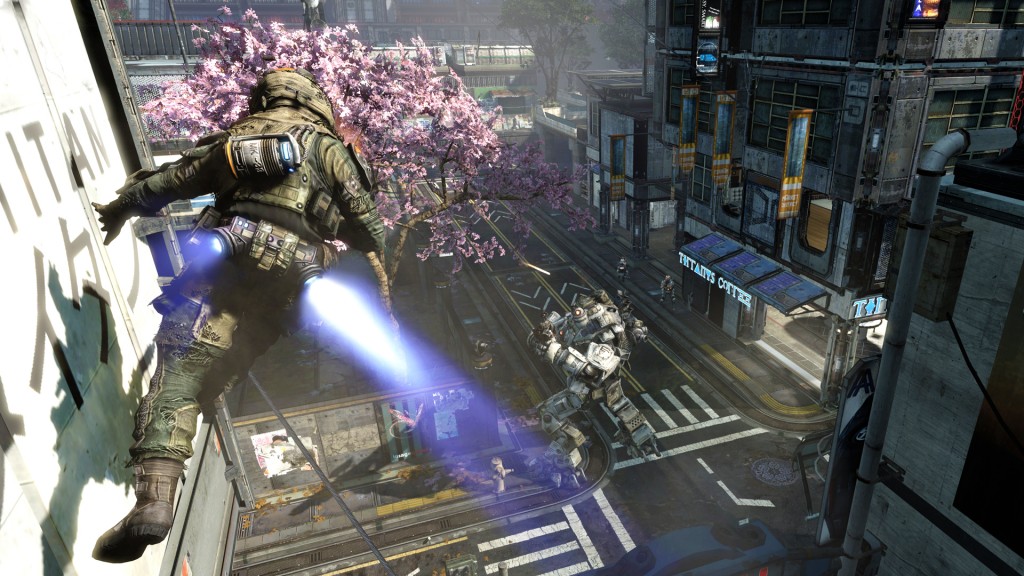
Arguably the most anticipated game of the new console generation, “Titanfall” hit the shelves last Tuesday and has since taken the gaming world by storm. Developed mainly by one of the “Call of Duty” co-creators, “Titanfall” won over 60 awards at the last Electronic Entertainment Expo (E3) and could change the first-person shooter genre from here on out.
Designing a controller driver especially for this game, Microsoft has really put faith into this project. With early reviewers predicting it to be the next logical evolution for first-person shooters of the new generation, Microsoft isn’t just hoping for a blockbuster. They’re hoping for a game changer.
Perhaps the greatest aspect of “Titanfall” is that it’s not really bringing anything new to the table. When you sit down and play it, you aren’t surprised by gaming elements that you haven’t seen before. On the contrary, as soon as you load up the game, you feel very much at home in the midst of an inter-planetary military struggle. The story may not be the strongest or best developed — “Titanfall” is a straight-up, adrenaline-rush, robotic brawl. The game isn’t offering an emotionally driven war story.
However, “Titanfall” appeals to “Call of Duty’s” online multiplayer bro culture, and does a great job at synthesizing the elements of crowd favorite first-person shooters of the last generation. The fluid and dynamic motions of the pilots (foot soldiers) are very reminiscent of “Mirror’s Edge,” while the large-scale, team-based mayhem recalls titles like “Battlefield.” From the first glance at the game, you may even be inclined to think of it as the love child of “Halo” and “Call of Duty.” What “Titanfall” does best is not forcing the gamer to make any compromises with multiplayer game elements. It knows that you want it all, and it’s more than willing to bring it.
The game revolves around a military struggle between the Interstellar Manufacturing Corporation and the Militia. While “campaign mode” usually implies a single-player, narrated experience, the campaign in “Titanfall” is more like a series of online multiplayer matches with some occasional voiceovers and challenges. This, of course, weakens the story experience, but it’s really just practice for the game’s “classic mode,” which ditches the story elements and thrusts the player into multiplayer, team-based carnage.
In “Titanfall,” you’ll play as two separate entities across all the classic game modes and campaigns: the Pilot and the Titan. As a Pilot, you play as a foot soldier with customizable gun load-outs and appearances. You’ll fight other Pilots and Titans from the opposing team. After two minutes, you’ll be able to call in your Titan. The two-minute time period can be reduced by making enemy kills (comparable to “Call of Duty” killstreaks).
When you call in your Titan, look to the sky to see your robotic counterpart come crashing down like a meteor. You can either pilot your Titan, or activate its AI mode. While you’re not necessarily more powerful as a Titan (it has its trade-offs), you might never feel as overpowered as when you melee-punch enemy ground soldiers. These soldiers, however, can jump on your back and attack your weak points for massive damage. When your Titan is close to death, you have the option to eject (very ‘60s spy-style) and escape your demise.
The combat runs a lot like the familiar “Call of Duty” game that everyone’s used to, with added elements. From wall running to double jump jet-packing, the dimensions of the common first-person shooter have been completely expanded. You can’t just camp out on a roof somewhere anymore because it’s no longer hard to get to. It’s now quite literally a jump away. Areas of the map and vertical levels have never seemed more open. The game begs for lesser regard for your own character’s survival, pushing you to rush enemies and act quickly. The best part is, it never lets up.
While “Titanfall” may lack a cohesive and impressive story line, it’s important to note that the game never promised a deep and involved narrative. If you want more of an emotional, story-driven, single-player experience, you’ll want a game like “Dark Souls II” (which also came out last Tuesday for PC, PlayStation 3 and Xbox 360). “Titanfall” promised a fun and engaging multiplayer experience across all the game modes, and it has certainly delivered. So if you’re down for an intense multiplayer experience and you find yourself particularly drawn to jumping with jet packs and controlling huge powerful robots, “Titanfall” will be a game you won’t want to pass up. You can pick it up now for $60 at a game retailer.
“Titanfall” was created as a Microsoft exclusive through a contract between Microsoft and publisher EA Games that will span the life of the title. This means that the game won’t ever make it to PlayStation. Exclusives aren’t uncommon, but at such an early stage in the game, the Xbox One is showing a much stronger showcase of exclusive content for its users.
So, did Microsoft get the genre-defining shooter that it paid so much for? Only time will tell. All we can be sure of is that people are going to be playing this game for a while.


